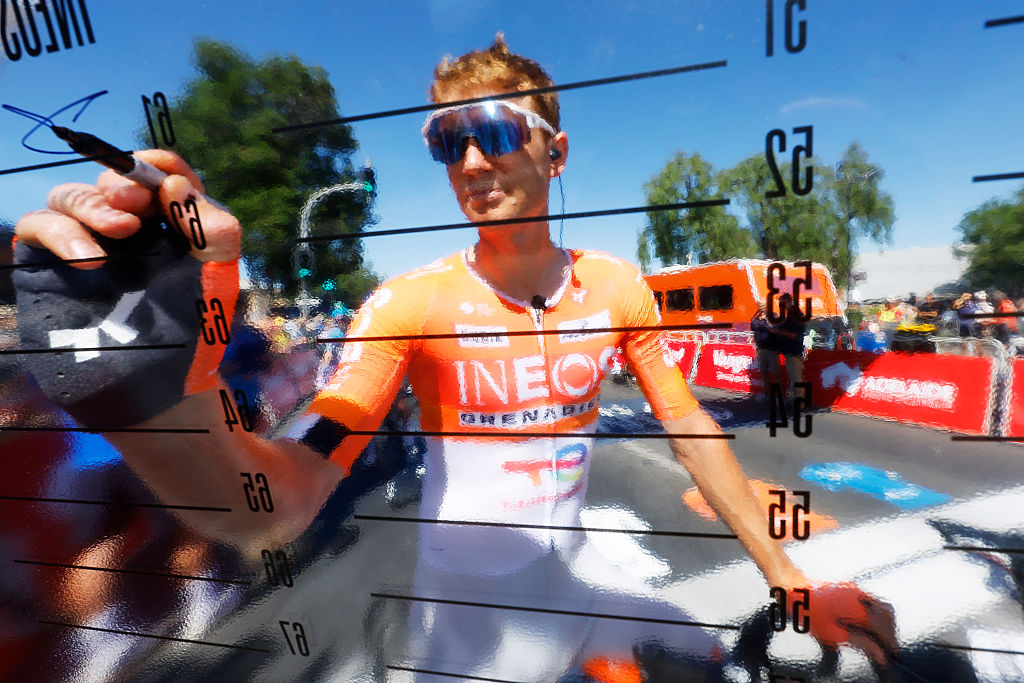Vuelta a Espana leader Molard adamant he'll fight to the end
Frenchman faces difficult challenge on Covatilla on Sunday
The latest race content, interviews, features, reviews and expert buying guides, direct to your inbox!
You are now subscribed
Your newsletter sign-up was successful
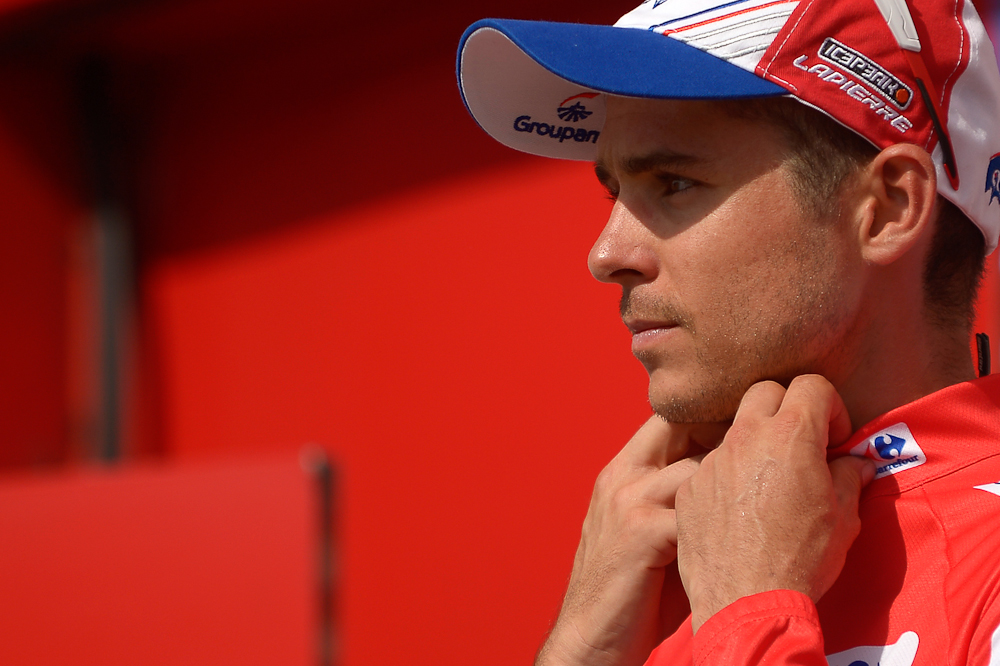
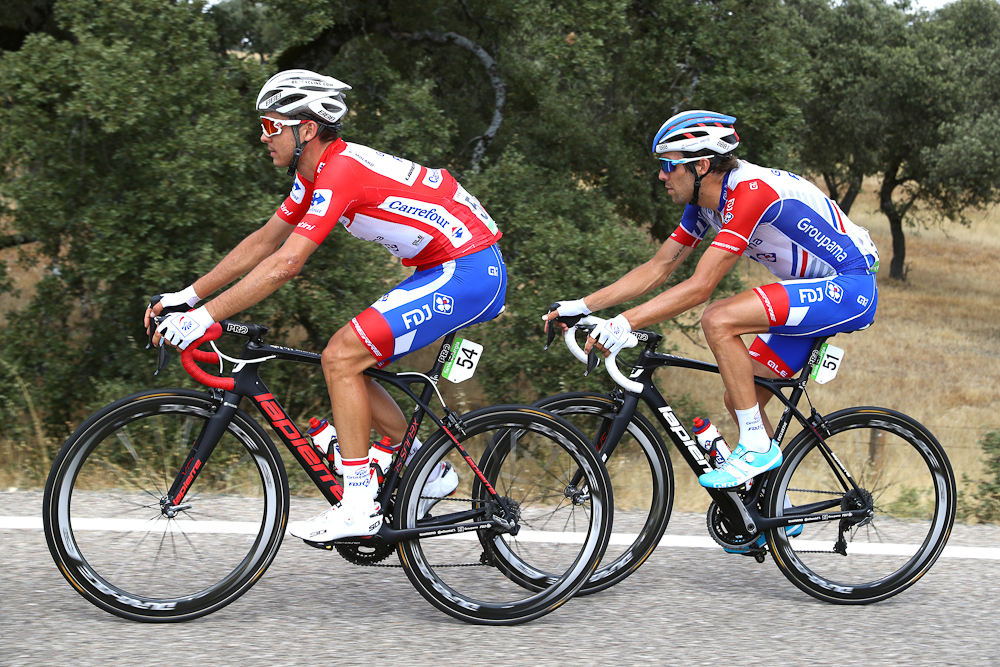
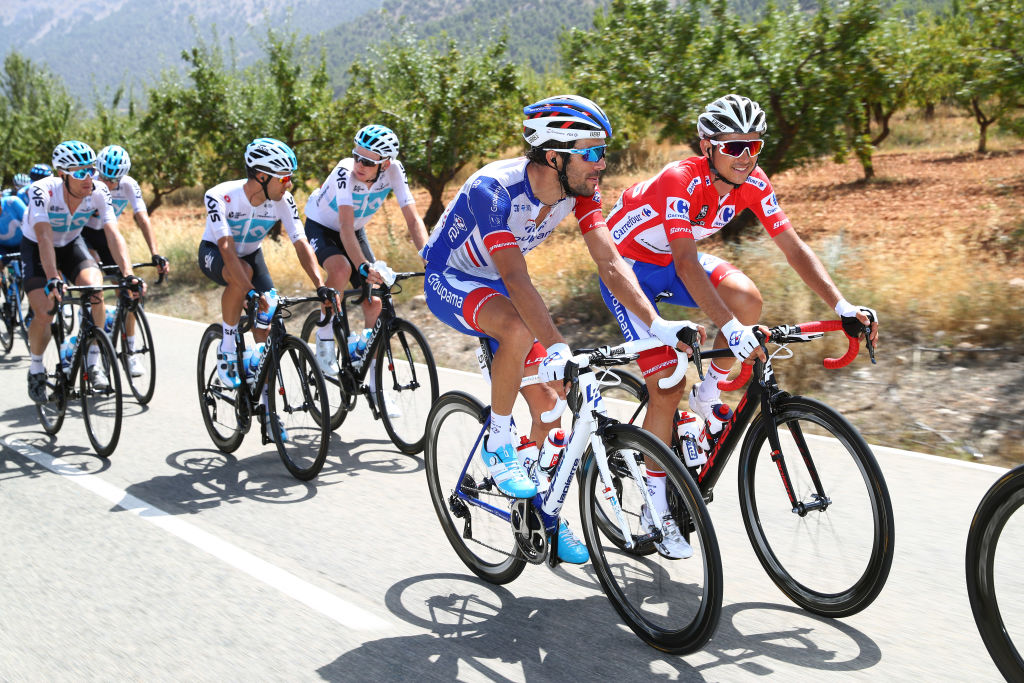
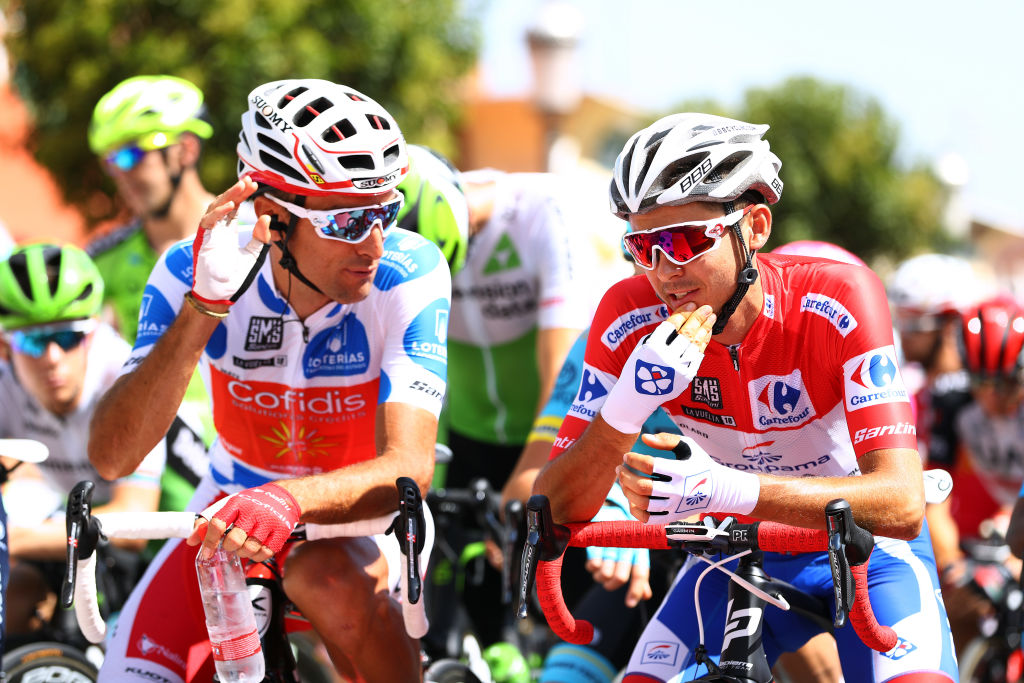
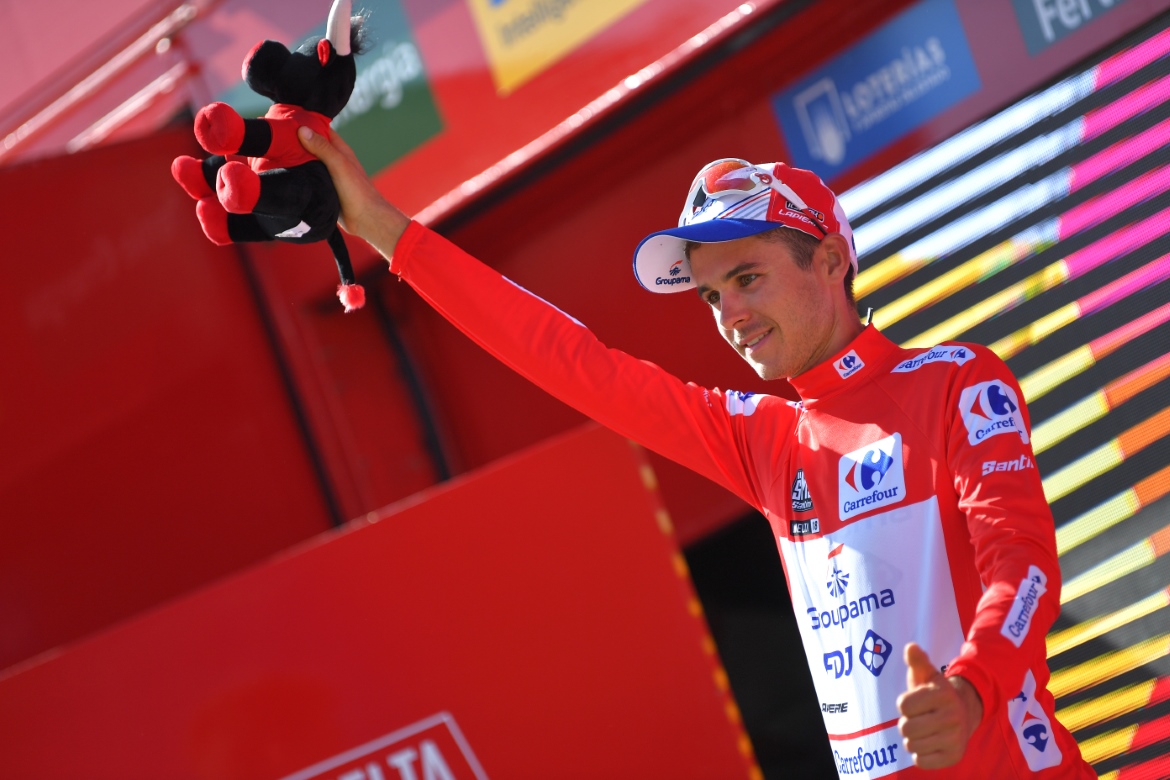
France’s Rudy Molard (Groupama-FDJ) put on a brave face for Saturday’s press conference as Vuelta a España leader, well aware that it could be his last day wearing la roja.
Having taken the lead on stage 5, expectation amongst the media that the 27-year-old will lose the red jersey on stage 9’s ascent of La Covatilla is so high that although Molard politely requested that the written press limit themselves to a total five questions because of a three-hour post-stage transfer, in fact he was only asked four.
“It will be difficult to keep the jersey on [Sunday’s] big climb,” the Frenchman acknowledged. “I hope I will be able to do so, but when I see [Alejandro] Valverde’s current form, it’s clear who’s the big favourite.
“It was a difficult little finish today [Saturday], but overall it was a fairly straightforward stage and being well-placed in the finale was important, so as not to get caught behind,” said Molard, who was 30th on the line at Almaden.
Molard refused to tell reporters Groupama-FDJ’s strategy for keeping the lead, his first ever in any stage race as a pro, and which constitutes the highest-profile moment of his career to date. But he promised, in any case, he would “defend it all out.”
“I don’t know much about Sunday’s final climb [La Covatilla], and I’ve never done it," the Frenchman said. "I’d prefer something shorter and steeper, but we will see what we can do."
To his considerable credit, Molard has ridden a very solid race in defence of his lead to date in the crosswinds of stage 6 and tumultuous, difficult finales of stages 7 and 8. But he recognised stage 9 was a wholely different ball game.
The latest race content, interviews, features, reviews and expert buying guides, direct to your inbox!
“There are 4,000 metres of vertical climbing on the stage, so it’s going to be a very tough one for everybody. We’ll all reach the foot of the Covatilla feeling very tired,” he said. “Then we’ll see what happens.”
Alasdair Fotheringham has been reporting on cycling since 1991. He has covered every Tour de France since 1992 bar one, as well as numerous other bike races of all shapes and sizes, ranging from the Olympic Games in 2008 to the now sadly defunct Subida a Urkiola hill climb in Spain. As well as working for Cyclingnews, he has also written for The Independent, The Guardian, ProCycling, The Express and Reuters.

